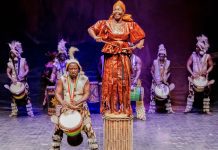|
Getting your Trinity Audio player ready...
|
New Jersey’s first constitution contained a unique feature – women could vote. Few women voted until an exciting election in Essex County in 1807 in which Elizabeth and Newark battled over where an expensive courthouse should be located. Charges against some women for fraudulent voting resulted in the disfranchisement of all women by a statute justified as “highly necessary to the safety, quiet, good order and dignity of the State.” The American woman suffrage movement was born during the fight to abolish slavery. Elizabeth Cady Stanton and Lucretia Mott were denied seats at the 1840 British Anti-Slavery Convention on the basis of gender. They returned to America, vowing to fight for women’s rights. In 1848, they held their first convention at Seneca Falls, New York. The high point was presentation of the Declaration of Sentiments, which included higher education, property rights and suffrage for women. So radical was the concept of woman suffrage that some delegates refused to sign the Declaration. The Declaration was signed by 100 brave souls and “extensively published, unsparingly ridiculed by the press and denounced by the pulpit.” Susan B. Anthony soon joined the fight in a partnership that would last for over 50 years. After the Civil War, Anthony and Stanton fought a losing battle to have women’s suffrage included in the 14th and 15th Amendments. Women were expressly excluded.
The National Women’s Suffrage Association sent organizers to all major party conventions. Some ladies were splattered with rotten eggs when they tried to vote. Anthony was fined $100 for voting in 1872. “I will never pay a dollar,” she said and never did. Some New York newspaper attacks were vicious against Anthony and the suffragists. The men of the West were more chivalrous. The territory of Wyoming was the first to grant woman suffrage, followed by Utah. Wyoming later refused to enter the Union without woman suffrage. In 1870, a group led by Lucy Stone, joined the fray. In 1884, Belva Lockwood, a prominent lawyer, ran for President. The men of Rahway, New Jersey, ridiculed her by parading in Mother Hubbard dresses. In 1913, Quaker Alice Paul formed The National Women’s Party and led a lobbying effort for a constitutional amendment for women’s suffrage. Ministers throughout the country decreed that it would ruin family values. The turning point was the prominent role women played during World War I to aid the war effort. Tennessee, as the 36th and final state necessary for approval of the 19th Amendment, on August 20, 1920, wiped out the ancient discrimination of sex from American politics.





